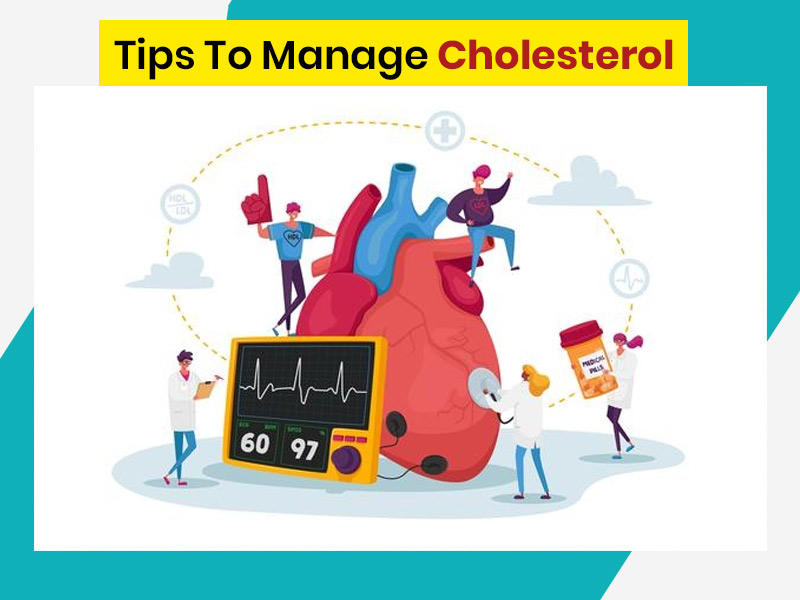
First and foremost, cholesterol isn’t all bad. Produced in the liver, it performs several vital functions in the body. It keeps our cell wall flexible, produces hormones such as estrogen and testosterone, makes our metabolism more effective, and produces bile acids, which help our body digest fats and other vital nutrients. But, just like any other thing, the excess of cholesterol is also bad.
Table of Content:-
To understand it, we need to know that since cholesterol is insoluble in water, it is transported across the body by a special molecule, called a lipoprotein. These molecules are of different kinds. A low-density lipoprotein, or LDL, deposits cholesterol on the walls of blood vessels, which can lead to clogged arteries, heart attack, or even kidney failure. On the other hand, a high-density lipoprotein, or HDL, takes cholesterol away from the walls of the blood vessels, and thus prevents these serious diseases. Thus, understandably, HDL cholesterol is good, while LDL cholesterol is bad.

(Photo Credit: Freepik)
High cholesterol level is a major problem in India. In fact, studies suggest 25-30% of the urban population and 15-20% of the rural folks suffer from it. It is alarming since a high cholesterol level puts a person at risk of several serious health conditions. On one hand, for people with high cholesterol levels, it is crucial to bring it down. On the other hand, it’s important for others to manage/control their level, so as to prevent it from getting on the higher side in the first place. To know some tips on how to do that, Onlymyhealth spoke to Dr Bharat Kukreti, Associate Director, Cardiology, Paras Hospitals, Gurugram.
Dr Kukreti described high cholesterol as a “silent killer”. This is because it usually doesn’t display any symptoms. In fact, many don’t even realise that they have it until they suffer from a serious condition such as a heart attack or a stroke. He says that food, physical activity, and our overall lifestyle play a big role in determining the cholesterol level.
Dietary Tips

(Photo Credit: Freepik)
Eating too much of those foods that are high in cholesterol, saturated fats, and are processed can increase your risk of high cholesterol. Here is how you can prevent it:
- Trans Fat: Limit your intake of foods that are rich in trans fats as they increase the overall cholesterol level. Foods high in trans fats include fried foods, baked foods such as cakes, pastries, and cookies, certain vegetable oils, potatoes, pizza, etc.
- Omega-3 Fatty Acids: Although omega-3 doesn’t have any effect on LDL cholesterol, it has other health benefits, such as lowering blood pressure. Salmon, mackerel, herring, walnuts, and flaxseeds are some of the foods that contain omega-3 fatty acids.
- Soluble Fiber: Increase your intake of soluble fiber as it helps in managing cholesterol. Foods that are rich in soluble fiber include oatmeal, kidney beans, Brussels sprouts, apples, and pears.
Also read: Try These 15 Herbal Home Remedies For Cholesterol Imbalance In Your Body
Exercise Tips

(Photo Credit: Freepik)
By exercising regularly, you can manage your cholesterol level. In fact, every person should exercise for at least 150 minutes a week. Here are some of the workouts you can do:
- Brisk walking
- Jogging/running
- Hiking
- Cycling
- Resistance training
- Playing a sport
If you are largely inactive physically, it is better to start with something small and easy. You can start with walking for a few minutes daily. Once you get into the rhythm, you can try more demanding workout options of your choice.
Other Lifestyle Tips
Dr Kukreti has enlisted some lifestyle tips that can help you manage your cholesterol level:
- Have a balanced diet, which includes lots of fruits and vegetables, along with whole grains, complex carbohydrates, proteins, and healthy fats.
- Make it a point to get at least 150 minutes of exercise in a week.
- Manage your weight.
- Quit smoking.
- Use healthy ingredients and cooking methods.
Also read: 6 Important Things You Need To Know About Your Cholesterol Levels
Other than these, get regular health checkups. As you know that generally, high cholesterol doesn’t display any symptoms, hence, it is better to get yourself checked regularly.
(With inputs from Dr Bharat Kukreti, Associate Director, Cardiology, Paras Hospitals, Gurugram)
Read more articles on Miscellaneous
Photo Credit: Freepik
Also watch this video
How we keep this article up to date:
We work with experts and keep a close eye on the latest in health and wellness. Whenever there is a new research or helpful information, we update our articles with accurate and useful advice.
Current Version